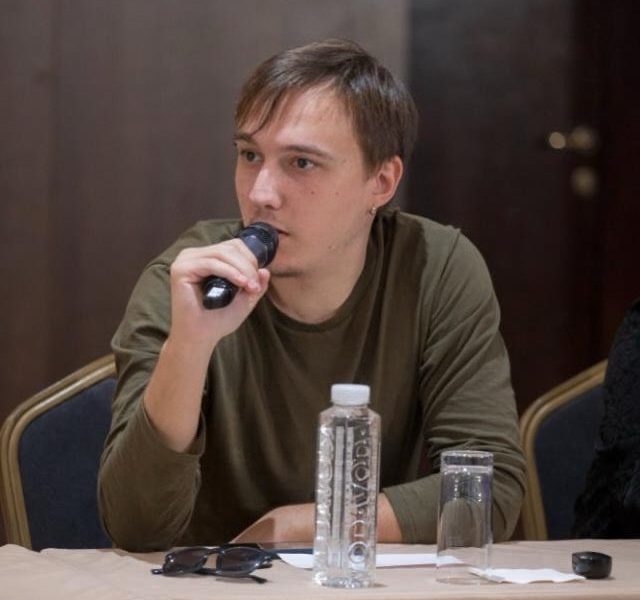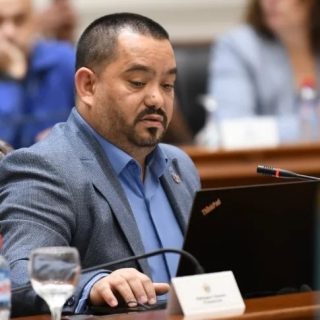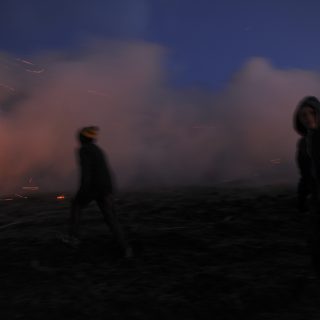The Hague Tribunal, a name well-known to everyone living in this region, evokes strong opinions—whether collective or individual. Unfortunately, it has become evident that while the majority hold an opinion about it, very few people possess the knowledge necessary to substantiate their views with facts. On the seventh anniversary of the tribunal’s closure, I decided to thoroughly re-examine my knowledge and opinion of it, my earliest memories that shaped my initial views, as well as the paths available to me for learning about the tribunal. Additionally, I sought to explore how this court, which was deeply embedded in public consciousness during its 24 years of existence, is now remembered.
Trials in Color
On May 25, 1993, the United Nations Security Council adopted Resolution 827, establishing the International Criminal Tribunal for the former Yugoslavia (ICTY), colloquially known as the “Hague Tribunal” in this region. It was the first war crimes court established by the United Nations and the first international war crimes court since those in Nuremberg and Tokyo. The tribunal was founded just four months before I was born, amid a maelstrom of sanctions and war engulfing the former Yugoslavia—a maelstrom that would last until the end of the 20th century and, according to some, even extend into the early years of the new millennium. Fortunately, I was not old enough to remember the wars or experience firsthand the horrific daily realities of war, except for the NATO bombing of Yugoslavia in 1999, which was a response to, and an attempt to prevent, mass war crimes and human rights violations committed by the Yugoslav Army and the Serbian Ministry of Internal Affairs against Kosovo Albanians and other non-Serb populations in Kosovo under directives from the highest political and military officials of the then-Federal Republic of Yugoslavia. My first encounters with the wars fought in this region during the 1990s, aside from the traumatic memories shared by family and community members, occurred through the Hague Tribunal. The now-legendary broadcasts of trials—first of Slobodan Milošević and then Vojislav Šešelj—were a daily occurrence for anyone with the (mis)fortune of owning a television at the time. From a sociological perspective, it is fascinating to observe how a legal event transformed into something resembling a football match, where indicted war criminals “on our side” faced off against “hated” tribunal judges and prosecutors – and so we laughed at the disrespect shown towards the judges, the tribunal and the process itself. In such a “match,” victory was their acquittal for crimes in Croatia, Bosnia and Herzegovina, and Kosovo—crimes they “did not commit” and which were “imposed on the Serbian people.” I am undoubtedly not the only one who grew up in this climate and heard such opinions. Fortunately, the environment and upbringing I received were invaluable in helping me reject the revisionist and apologetic narrative that dominated at the time. Following Serbia’s obligation to arrest all fugitives, including Ratko Mladić and Goran Hadžić, in 2011, and the conclusion of major trials before the ICTY, the tribunal faded from our daily lives. However, its legacy and what it has left behind continue to play a significant role in the lives of every individual in Serbia.
A “Week” Goes By
On November 29, 2017, coincidentally on the former Republic Day of the Socialist Federal Republic of Yugoslavia, the tribunal delivered its final judgment, and by the end of the same year, it closed its doors. As we approach the seventh anniversary of its closure, I find myself pondering questions such as, “What is its legacy?” and “How will people born that year perceive it?”
Is its legacy the indictment of 161 individuals and the conviction of 93 for some of the gravest war crimes, including genocide? Is it the opportunity it provided for victims to have their voices heard, to have their day in court, to confront their tormentors, and those of their loved ones? Perhaps it is the tribunal’s vast, digitized archive, accessible online, containing millions of pages of testimonies, military and police reports, and video recordings. This archive is undoubtedly invaluable and significant for researchers studying the breakup of Yugoslavia and the ensuing wars. Or will its primary legacy be the denial and relativization by many leading politicians and academics of its judgments, investigations, and work in shedding light on the most widespread war crimes in Europe since World War II? The refusal of Serbia to accept that the Army of Republika Srpska under the command of Ratko Mladić committed genocide in Srebrenica? Will it be remembered as a political, anti-Serb, anti-Croat institution—simultaneously—designed to impose guilt on specific nations, as claimed by leading politicians in Serbia and Croatia? Unfortunately, I think the answer is simple, despite the complexity of these questions. All these differing perceptions are part of the tribunal’s multifaceted legacy, and until serious political changes and efforts occur, negative perceptions will continue to dominate.
“A Missed Opportunity” – Social Responsibility
“Where are the historians’ works?” This is a question I frequently encounter, and I often struggle to provide a satisfactory answer. It is insufficient to simply say, “we exist,” when the number is so negligible that it could be counted on one hand. The cliché “It’s still too early to write about this” serves as an excuse and justification for people to entirely disregard the topic of the wars and the Hague Tribunal. The absurdity of this statement—33 years after the war’s outbreak and 31 years since the tribunal began its work—becomes evident when we consider that saying the same in 1974 about World War II or in 1977 about the Nuremberg and Tokyo Trials would have been unthinkable. The history of the wars and the Hague Tribunal is being written, but these works often perpetuate narratives we have heard for decades, lacking critical reflection and merely repeating discredited facts and conspiracy theories. This is why it is crucial for more young historians, political scientists, and legal scholars to engage with topics related to the Hague Tribunal. Otherwise, destructive and revisionist narratives may become the only ones. The tribunal’s vast archive—this enormous collection of documents, testimonies, and video recordings—offers invaluable insights into the breakup of Yugoslavia and the wars that followed. However, largely due to political and ideological disagreements, historians studying the wars of the 1990s dismiss the tribunal’s archive as irrelevant, insufficiently reliable, and credible—something to be ignored. While the archive contains valuable information that could contribute to a more objective understanding of events, it is often overlooked in favor of preexisting narratives that dominate the media and public discourse. Utilizing this archive and all the information it contains to finally combat revisionism and denial could become one of the tribunal’s greatest and most significant legacies—provided future generations are willing to work on it.
Looking Forward
As long as the key figures from the last decade of the 20th century continue to play prominent roles in our lives and shape our destinies, the Hague Tribunal will retain its place. However, time passes, opportunities are missed, and it seems that efforts to confront the past are not improving—they are not even stagnating but worsening. You can interpret this text as a warning, advice, or plea. But I hope that in seven years, I will not be able to simply copy and paste this text with only minor changes.
Vanja Đurđić, Master’s student in History, Faculty of Philosophy, University of Belgrade.
Translated by Luna Đorđević




